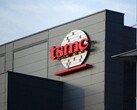The Trump administration is considering equity stakes tied to CHIPS Act awards, but has distinguished its approach based on the company's actions. It signaled that it will not pursue shares in companies that are stepping up U.S. investment. A government official stated the Commerce Department is “not looking to take equity from TSMC and Micron,” clarifying that the equity stake policy differs for various recipients. This eased concerns that Washington would demand ownership across the board.
During a live interview on CNBC, Commerce Secretary Howard Lutnick explained that the White House is working to secure about a 10 percent stake in Intel, highlighting a distinct equity-for-funding approach. The deal would involve nearly $8 billion in CHIPS funding, including $3.2 billion from the Secure Enclave program aimed at producing secure chips for military and defense systems. He said this approach would give taxpayers a return, rather than just providing grants. According to a government source, the administration has considered similar deals for other companies, distinguishing these equity negotiations from grant-only awards.
Sources said TSMC executives have discussed returning the subsidies. This is if the U.S. government requires them to divest their shares. The company received up to $6.6 billion for its Arizona plant. The plant started making advanced chips in late 2024. However, it has not depended much on U.S. support. A U.S. official later clarified that companies increasing their investments will not be required to relinquish equity.
This update matches recent company expansions. TSMC increased its U.S. investment to $165 billion and will build three additional factories in Arizona. Micron, with $6 billion in funding, announced a $200 billion plan and a new U.S. factory set to open in 2027. Officials stated these companies are not part of the equity-for-grants initiative.
The overall approach combines financial support with added pressure. President Donald Trump set a 100 percent tariff on imported semiconductors, but made exceptions for companies that make chips in the U.S. The administration is also taking a 15 percent share of China sales from Nvidia and AMD. Converting parts of Intel’s package into equity could still face legal scrutiny, given prior deal terms and profit-sharing triggers built into the law.
Source(s)
WSJ (in English)











